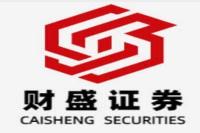Decoding the Hong Kong Stock Market Rollercoaster: A Deep Dive into Market Volatility
Meta description: Understand the intricacies of Hong Kong stock market fluctuations, including recent trends in the Hang Seng Index and Hang Seng Tech Index. Learn expert strategies for navigating volatility and making informed investment decisions. #HongKongStockMarket #HangSengIndex #HangSengTechIndex #StockMarketVolatility #InvestmentStrategies
The Hong Kong stock market, a vibrant hub of Asian finance, is known for its dynamism – a potent blend of opportunity and unpredictability. The recent seesaw action, with the Hang Seng Index and Hang Seng Tech Index experiencing dramatic intraday swings, has left many investors scratching their heads. This isn't just another market blip; it's a microcosm of the complex forces shaping global finance. We've all seen those headlines screaming about record highs and then, just as quickly, plummeting lows. What's really going on? Is this a sign of a broader economic shift, a temporary correction, or something else entirely? Understanding the intricacies of this rollercoaster ride is crucial for anyone with even a toe in the waters of Hong Kong's financial landscape. In this in-depth analysis, we'll dissect the recent market behavior, explore the underlying factors driving volatility, and provide actionable insights for navigating this dynamic environment. Forget dry statistics and jargon-filled reports; this is a real-world guide, drawing on years of experience and seasoned observations to help you demystify the Hong Kong stock market and make smarter, more confident investment choices. We'll go beyond the headlines, exploring the human element of investment, the emotional rollercoaster, and how to keep your cool when the market goes haywire. So buckle up, it's going to be a wild ride! This isn't just about numbers; it's about understanding why those numbers move, and how that directly impacts you. Let's dive in!
Understanding the Hang Seng Index and its Recent Volatility
The Hang Seng Index (HSI), the benchmark index for the Hong Kong Stock Exchange (HKEX), reflects the performance of the largest companies listed on the exchange. Think of it as a snapshot of the overall health of the Hong Kong economy. Its recent volatility, characterized by sharp intraday swings between gains and losses, is a symptom of several interconnected factors. One key driver is the global macroeconomic environment. Geopolitical tensions, inflation concerns, and interest rate hikes by central banks worldwide all cast long shadows over market sentiment. When global uncertainty rises, investors often flock to safer assets, pulling money out of riskier markets like Hong Kong. It's a bit like a game of musical chairs – when the music stops, everyone scrambles for a seat, and some are left standing.
Furthermore, the HSI's composition heavily influences its performance. The index is dominated by large-cap companies in sectors like finance, technology, and real estate. These sectors are particularly sensitive to changes in global economic conditions and regulatory policies. A single negative news report about a major player can trigger a domino effect, impacting the entire index. This isn't simply about economics; it’s about investor psychology, fear, and greed – the very essence of market dynamics. A shift in investor sentiment, fueled by news or speculation, can swiftly change the market trajectory, leading to the kind of wild swings we've seen recently.
Another crucial aspect is the interconnectedness of global markets. The Hong Kong stock market isn't an island; it's deeply integrated into the global financial system. Events in other major markets, like the US or Europe, can have a ripple effect on Hong Kong. Think of it as a network of interconnected vessels – a storm in one area can easily create waves elsewhere. This interconnectedness makes accurate forecasting incredibly challenging, even for seasoned professionals. It's a game of predicting not just the local weather but the global climate.
The Hang Seng Tech Index: A Separate Story
The Hang Seng Tech Index (HSTI), a sub-index focusing on technology companies listed in Hong Kong, has also experienced significant volatility. This index, heavily influenced by giants like Tencent and Alibaba, is even more susceptible to shifts in global tech sentiment and regulatory changes. Regulatory crackdowns in China, for instance, have sent shockwaves through the HSTI, highlighting the significant geopolitical risks associated with investing in this sector. It's a reminder that while technology offers incredible growth potential, it also carries a higher degree of risk.
The HSTI's volatility is also amplified by the fast-paced nature of the tech industry itself. Rapid technological advancements, intense competition, and changing consumer preferences create a volatile environment. One day, a company might be riding high on a new innovation; the next, it could be facing fierce competition or a sudden shift in market demand. This inherent volatility isn't necessarily negative; it presents opportunities for savvy investors who can identify promising companies and ride the waves of technological disruption. But it demands rigorous research, due diligence, and a strong stomach for risk.
Navigating the Volatility: Strategies for Success
So, how can investors navigate this turbulent landscape? The answer, unfortunately, isn’t a simple one-size-fits-all solution. However, several key strategies can significantly improve your chances of success:
-
Diversification: Don't put all your eggs in one basket. Spreading your investments across different sectors, asset classes, and geographical regions reduces your overall risk. It's like having multiple safety nets – if one fails, you still have others to rely on.
-
Long-Term Perspective: Short-term market fluctuations can be unnerving, but focusing on the long term can help you weather the storms. Remember, investing is a marathon, not a sprint.
-
Thorough Research: Before investing in any company, conduct thorough due diligence. Analyze financial statements, understand the company's business model, and assess its competitive landscape. Knowledge is power, especially in the volatile world of stock markets.
-
Risk Management: Understand your risk tolerance and invest accordingly. Don't take on more risk than you're comfortable with; it's crucial to protect your capital.
-
Professional Advice: Consider seeking advice from a qualified financial advisor. They can provide personalized guidance based on your individual circumstances and investment goals.
-
Stay Informed: Keep up-to-date on market news and developments. This doesn't mean panicking at every headline, but rather understanding the bigger picture and making informed decisions.
Frequently Asked Questions (FAQs)
Q1: Is the recent volatility in the Hong Kong stock market a sign of a larger economic downturn?
A1: The recent volatility is complex and not solely indicative of an imminent global downturn. While global economic headwinds certainly play a role, other factors, like geopolitical tensions and specific industry-related news, also significantly influence market fluctuations. It's crucial to look at the bigger picture rather than drawing conclusions from a single data point.
Q2: Should I be worried about investing in Hong Kong right now?
A2: Whether or not you should invest in Hong Kong depends entirely on your risk tolerance and investment horizon. The market's volatility presents both risks and opportunities. A well-diversified portfolio and a long-term perspective can help mitigate risks.
Q3: What are some key indicators to watch when analyzing the Hong Kong stock market?
A3: Key indicators include the Hang Seng Index itself, the Hang Seng Tech Index, interest rates, inflation figures, and global economic news. Monitoring these indicators can provide valuable insights into market trends.
Q4: How can I protect my investments during periods of high volatility?
A4: Diversification, risk management, and a long-term perspective are key strategies for protecting investments during volatile periods. Consider also having a portion of your portfolio in less volatile assets.
Q5: Are there any specific sectors in the Hong Kong market that are less vulnerable to volatility?
A5: While no sector is entirely immune to volatility, some sectors, like consumer staples, tend to be less volatile than others. However, thorough research is always necessary before investing in any sector.
Q6: Where can I find reliable information about the Hong Kong stock market?
A6: Reputable financial news sources, the official website of the Hong Kong Stock Exchange (HKEX), and reports from financial analysts provide reliable information. Be wary of unreliable sources and sensationalist headlines.
Conclusion
The Hong Kong stock market, much like a captivating drama, often unfolds with unexpected twists and turns. Its recent volatility serves as a potent reminder of the challenges and opportunities inherent in investing. By understanding the underlying factors driving market fluctuations, employing sound investment strategies, and remaining informed, investors can navigate this dynamic landscape with greater confidence. Remember, investing is a journey, not a destination, and patience, discipline, and a dash of courage are all indispensable ingredients for success. So, keep learning, keep adapting, and keep riding the waves!



